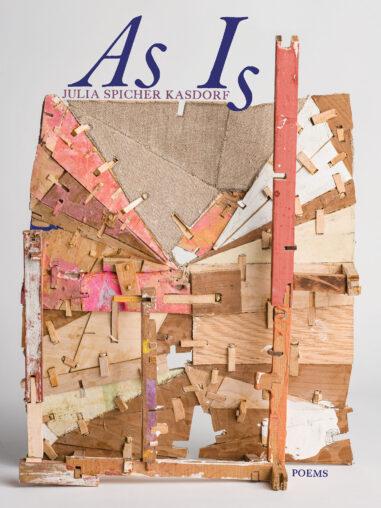Book Review
As Is, Julia Spicher Kasdorf’s latest poetry collection, is full of stunning poems that examine grief and acceptance of ourselves, our relationships, and the places in which we find ourselves, not only physically but emotionally.
The poems that comprise As Is tend to be shorter, many of them no longer than a page, and yet their brevity does not reduce their impact. Spicher Kasdorf is a master of endings as the poems in this collection attest. “Second Space,” for instance, a feminist poem in which the speaker addresses the reasons she puts two spaces after each period, concludes “and tucked that mistake away, like all the rest” in a mixture of saving face and self-blame with which many women are far too familiar. In “American Chestnut Plantation,” Spicher Kasdorf focuses on the region’s long-lost tree, lamenting in the conclusion, “Science will find a Chinese hybrid / and we’re left to settle memory’s debts.”
The solastalgia in “American Chestnut Plantation” is not limited to simply that poem. This sense of loss tied to one’s environment is pervasive in As Is, as her speakers struggle with how to be an American during the 45th president’s reign, how to be an American abroad in cities, how to become emplaced in a land where one’s ancestors immigrated. In “American Box Turtle,” the speaker recalls her grandfather carving his name and the date into the shells of live box turtles, a violence she wishes she could forget. Yet, as the title of the collection suggests, forgetting is not possible and many times we just have to understand things and peoples as they are, choosing our actions and responses in the moments that make up our day-to-day lives.
As Is returns again and again to its steady foundation of grief and acceptance, even when the speaker desires change.

Jessica Cory teaches at Western Carolina University and is a PhD candidate specializing in Native American, African American, and environmental literature at the University of North Carolina, Greensboro. She is the editor of Mountains Piled upon Mountains: Appalachian Nature Writing in the Anthropocene (WVU Press, 2019) and co-editor (with Laura Wright) of Appalachian Ecocriticism and the Paradox of Place (UGA Press, 2023). Her creative and scholarly writings have been published in the North Carolina Literary Review, North Dakota Quarterly, Northern Appalachia Review, and other fine publications. Originally from southeastern Ohio, she currently lives in Sylva, North Carolina.
_____________________________________________
Home Archives Fiction Poetry Creative Nonfiction Interview
Featured Artist Reviews Multimedia Masthead Submit
_____________________________________________

